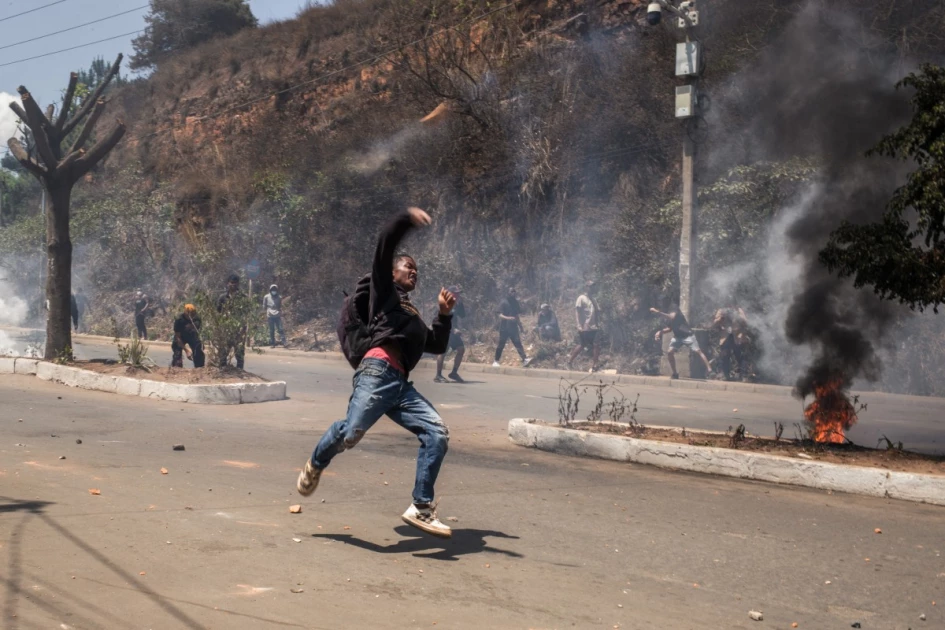Madagascar security forces blame protesters for violence

A protester throws stones towards police officers as they demonstrate against repeated water and electricity outages in Antananarivo on September 29, 2025. (Photo by AFP)

Audio By Vocalize
The Indian Ocean island has seen near-daily rallies over alleged misgovernance and water and power cuts, with protesters clashing with security forces in the capital Antananarivo on Saturday.
"Certain individuals engaged in violent acts and did not comply with the instructions of the security forces," said the joint command, which counts the army, police, and gendarmerie within its ranks.
"Measures taken by the security forces on the ground depend on the behaviour of the protesters," it said.
At least 22 people have been killed and hundreds injured since the protests began on September 25, according to the UN, which condemned heavy-handed policing, including the use of live ammunition.
Some of the victims were protesters or bystanders killed by the police or the security forces while others were killed in the widespread violence sparked by criminal gangs and looters, the UN said.
The government has rejected the toll as based on rumours or misinformation.
Calm returned to Antananarivo on Sunday, with only churchgoers and worshippers seen gathering as they came to and from services.
The scene was in stark contrast to the day before, when thousands took to the streets demanding President Andry Rajoelina's resignation, prompting police to fire volleys of tear gas to disperse the crowd.
Pro-government supporters also held a rally in the capital, though it drew fewer participants than the opposition protest.
The president sacked the government on Monday in an attempt to placate public anger.
Despite its natural resources, Madagascar remains among the world's poorest countries.
Nearly three-quarters of its population of 32 million were living below the poverty line in 2022, according to the World Bank.
Corruption is widespread and the country ranks 140th out of 180 in Transparency International's index, which ranks countries by their perceived level of public sector corruption.


Leave a Comment